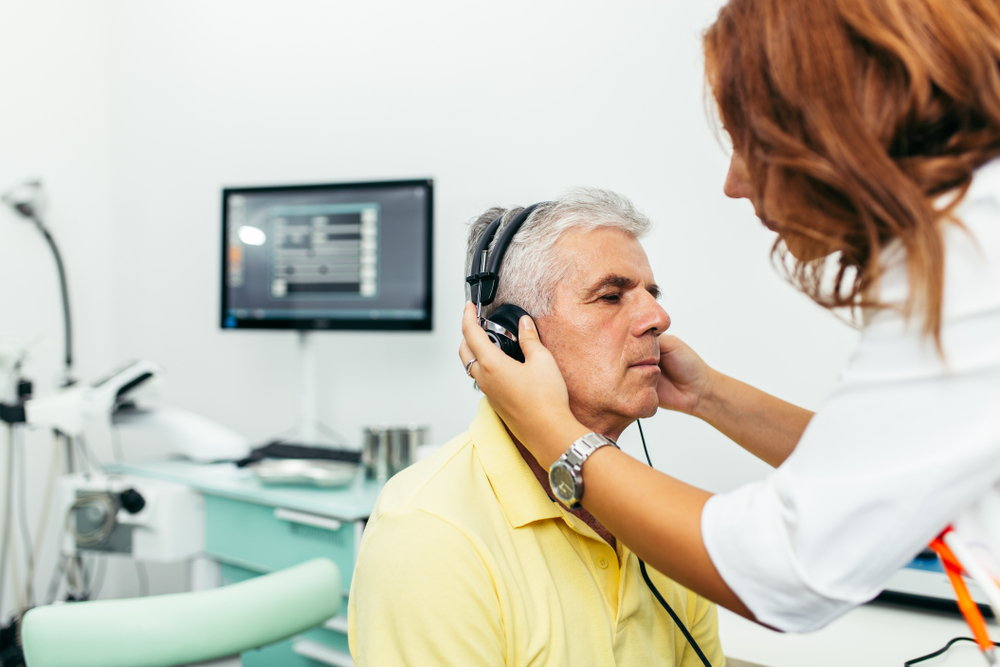You know your brain can do some amazing things. Individuals who have been in serious accidents can sometimes learn to walk again. People who lose their speech after having a stroke often recover most of their ability to talk.
And memories? Science doesn’t know exactly how they work, but it’s astounding that we can remember things from when we were 4-years-old.
With all of the amazing things the brain can do, you may be wondering if it can help you hear better when experiencing hearing loss?
Let’s find out!
Hearing loss is a silent assassin
Imagine a ninja sneaking up on you so slowly you can’t tell there’s someone moving behind you. That’s how most hearing loss progresses.
It’s probably been stalking you since you were born.
Hearing loss isn’t caused by aging, but through the years you’ve probably been exposed to loud noises, medications, unmanaged stress, and lifestyle choices that caused permanent damage to your inner ears.
That’s where hearing loss takes place, and this part of your body can’t repair itself the way it does when you cut your finger.
Hearing loss impacts brain function
Because hearing loss happens so gradually, people get used to it. Not hearing well becomes their new normal. They make excuses about why they can’t hear conversations or the TV.
“People are low-talking or mumbling.” “It’s just too noisy in here.” You know the drill.
They may be in denial, thinking it’s not bad enough to require treatment. This misconception leads many individuals to wait seven to 10 years to get their hearing tested.
During this time, the following issues are occurring in your brain:
- The part of your brain responsible for hearing is getting weaker as it receives less input.
- Because you were born with healthy hearing, as opposed to someone who was born deaf, your language comprehension is intertwined with your ability to hear.
- As you start losing your hearing, you also begin losing the ability to understand what words mean.
- This atrophy spreads to other parts of the brain, which impacts speech, memory, and cognitive function.
- People with untreated hearing loss face much faster cognitive decline than their peers. In other words, hearing loss can lead to dementia.
- At the same time, you’re overworking the other parts of your brain. Your brain is trying to read between the lines and decipher what people are saying when you take part in conversations.
- This causes mental fatigue. The most common scenario is a person retreats from social settings. Eventually, mental fatigue leads to social isolation and depression.
All of these factors age the brain much faster than it would otherwise. A woman in her 50s may act like a person in her 60s. A man in his 60s may act like a person in his 70s, and so on. It’s not because of their appearance. It’s because of what’s going on in their brains.
The good news is you can stop cognitive decline in its tracks and reverse this downward spiral.
Retrain your brain
The first thing you should do is get your hearing tested by a hearing specialist. If you need hearing aids, make arrangements to purchase them sooner rather than later. You can undo the damaging effects of hearing loss much faster with hearing aids, but don’t expect it to improve overnight.
Even when wearing hearing aids, your brain needs to relearn what it forgot when you couldn’t hear clearly. Some sounds may seem foreign at first. Audio training games may help with this issue. These games are fun, but they also help improve conversation skills.
In a Harvard Medical School study, a group of people in their late 60s and early 70s with severe hearing loss played a hearing game for 3.5 hours each week. The participants’ ability to understand words in conversations with background noise improved by a whopping 25%.
By playing the audio training game, they learned to process sound more effectively, reducing the impact background noise had on their ability to take part in a conversation.
In a separate study conducted by Cornell University, researchers used virtual reality to help retrain the brains of individuals impacted by hearing loss. Participants experienced similar benefits.
Don’t have access to fancy games? You can still learn how to retrain your brain.
Work with a friend in different settings. Start in a quiet room. Then, try turning on the TV in the background. Practice focusing on your friend’s voice while ignoring the sounds from the TV. As hearing and understanding become easier, visit a restaurant or other noisy place and continue practicing.
If you’ve waited seven to 10 years to get hearing aids, don’t be surprised if it takes a few months to feel comfortable participating in conversations again.
Remember that it takes time. In the Harvard study, it took participants 3.5 hours per day for eight weeks, so be patient. Keep working at it. You’ll be glad you did. It will significantly improve how well you hear.



